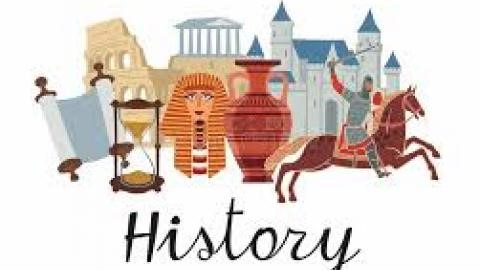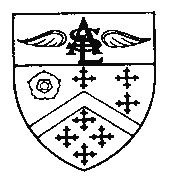History

Intent
At Latymer All Saints, we believe that the study of our high-quality, carefully planned history curriculum will inspire our children’s curiosity, fascination and sense of awe and wonder about Britain’s past and the wider world. They will develop a deep understanding about the lives and lifestyles of people in the past, including those of significant men, women and children as well as events from the recent and more distant past.
Over the course of their study, the children will become confident using key history skills across a range of contexts. They will:
- know and understand significant aspects of the history of the wider world: the nature of ancient civilisations; the growth and dissolution of empires; characteristic features of past non-European societies; achievements and legacies
- successfully develop their understanding of substantive historical knowledge and disciplinary skills
- develop a secure understanding of chronology, understanding that time periods are not isolated
- develop and use historical vocabulary, both orally and through writing
- investigate and interpret the past through making connections, drawing contrasts, analysing trends and framing historically-valid questions that interrogate the source materials
- understand the historical concepts of continuity and change, cause and consequence, similarity & difference, and use them to make connections, analyse trends, compose historically valid questions and create their own structured accounts, including written narratives and analyses
- practise methods of historical enquiry, understanding how evidence is used to make historical claims, and to discover how and why contrasting arguments and interpretations of the past have been constructed.
- gain historical perspective by placing their growing knowledge into different contexts: understanding the connections between local, regional, national and international history; between cultural, economic, military, political, religious and social history; and between short- and long-term timescales
- understand the methods of historical enquiry, including how evidence is used rigorously to make historical claims, and discern how and why contrasting arguments and interpretations of the past have been constructed
- they will be inspired and engaged with history through enrichment opportunities, external visits and independent studies using Film, Internet, Text and Trips (FITT) projects.
Implementation
We teach history through cross-curriculum topics which have been specifically designed for our rich diverse community and that we have developed over time using the National Curriculum and Chris Quigley milestones for progression.
The cross-curriculum topics teaching approach gives purpose and context to the knowledge concepts and skills taught. Sequences of lessons build on prior learning, make meaningful connections within and across subjects and enable children to know more and remember more over time.
A range of resources are used to enhance learning including; handling objects, pictures, historical documents, watching videos and reading information texts. Opportunities to develop core literacy skills are exploited through historical research and reporting as well as the learning of subject specific vocabulary. All units begin with a detailed Front Cover/ Knowledge Organiser on which the vocabulary is presented and referenced throughout the topic.
Children will be able to build on prior knowledge (teachers are expected to know what has been taught previously as well as having a secure understanding of what needs to be taught to ensure repetition and building on prior knowledge are effective) and link ideas together, enabling them to question the world around them and become enquiry based learners.
We take the opportunity to have special theme days which incorporate significant events and anniversaries in the curriculum, for example the Queen’s Platinum Jubilee and the Windrush 75th Anniversary as this provides enrichment and meaning. These events include the whole school community and stakeholders.
For individual year group focus see our curriculum overview below
Impact
We ensure children understand how the past influences the present and what past societies were like. When our pupils leave Latymer All Saints, they will have a range of skills and abilities, using historical terms to explain about the past and making comparisons to present day.
Throughout our History curriculum, we help children to understand the complexity of people’s lives, the process of change, the diversity of societies and relationships between different groups, as well as their own identity. In addition, children gain an understanding about how past events and challenges that have occurred in the past have had an impact on the difficulties we continue to face in the present day.
The development of cultural capital is vital for our pupils and their future life chances. Through exposure to a variety of meaningful experiences, including visits to our local church led by the Curate and local residents whose knowledge spans decades, children gain the opportunity to acquire oral history. These opportunities facilitate the understanding of the world around them and how it has changed.
See History milestones progression document below for how History skills develop year on year
Useful website links:
- BBC History for kids www.bbc.co.uk/history/forkids
- National Geographic Kids www.natgeokids.com/history
- National Curriculum www.assets.publishing.service.gov.uk/PRIMARY_national_curriculum_-_History




